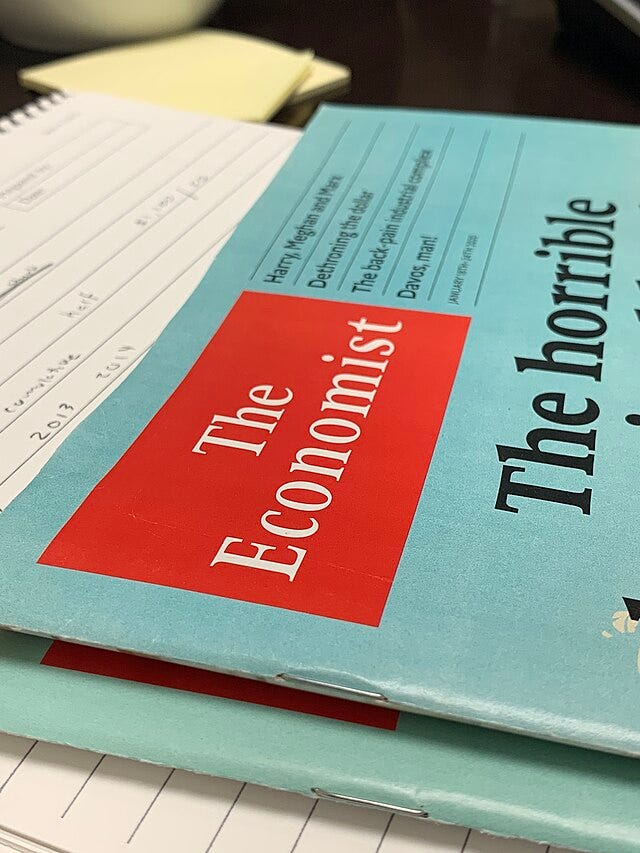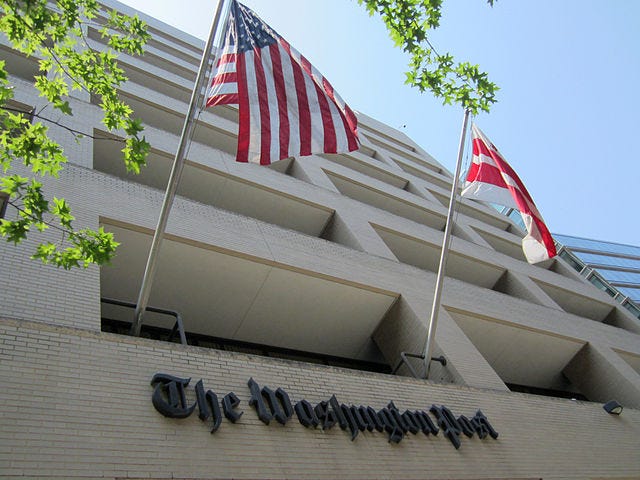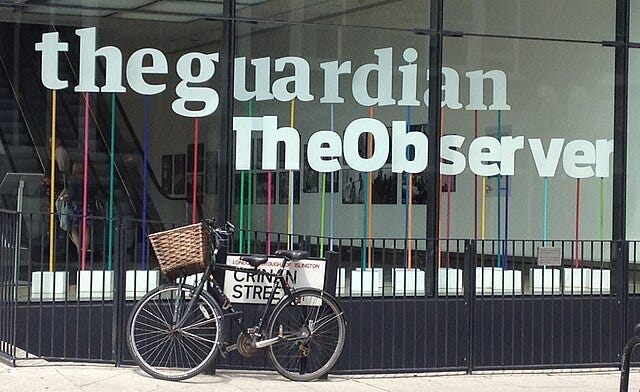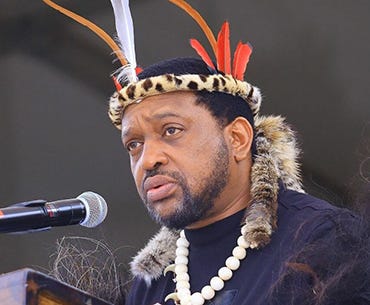
Good morning from… Can you guess where in Africa this is? (Answer at the bottom!)
How the World's Biggest Newsrooms Cover Africa—And Where They Fall Short




If global media coverage of Africa were a report card, most outlets would be scraping by with a 'C'—not failing, but far from excelling. That’s the big takeaway from the Global Media Index for Africa, a first-of-its-kind analysis tracking how 20 of the world’s most influential news organizations cover the continent.
Africa No Filter, alongside The Africa Center New York and the University of Cape Town, evaluated over 1,000 articles across six months, scoring outlets on the diversity of their coverage, the range of voices they platform, the number of African countries they report on, and the depth of their analysis. The verdict? There’s a lot of room for improvement.
Who’s Leading, Who’s Lagging?
The Guardian takes the gold with an overall score of 63%, topping the rankings for topic diversity and representation of different voices.
AFP (61%) and Reuters (60%) round out the top three, with AFP leading in geographical breadth, covering more African countries than any other outlet.
At the bottom of the pile? Three American heavyweights—The New York Times (51%), Wall Street Journal (48%), and Washington Post (47%)—ranking 18th, 19th, and 20th, respectively. The Post, in particular, landed in last place for its lack of topic diversity, continuing a long tradition of reporting on Africa primarily through the lens of crisis.
The Same Old Storylines
One of the biggest problems? A narrow focus on a handful of topics. Across the board, coverage leans heavily on politics, corruption, and poverty, with little space given to arts, culture, technology, or innovation—a pattern that continues to reinforce outdated narratives.
Washington Post (29%) ranked lowest in topic diversity, proving that while the world moves forward, certain stereotypes about Africa stay stuck on repeat.
Wall Street Journal (31%) landed dead last for geographical coverage, treating Africa more like a monolith than a continent of 54 diverse nations.
Where Are the People?
Global media still prioritizes the voices of politicians, business elites, and international organizations, largely ignoring everyday Africans—especially women, youth, and traditional leaders.
The Guardian leads in featuring a diverse range of sources (62%), while Russia Today lags behind at 36%, suggesting that nuance and diversity aren’t exactly its strong suits.
Not everything is bleak:
When it comes to providing balance, context, and avoiding stereotypes, most outlets performed relatively well:
Le Monde leads in offering context (95%), giving readers the background they need to understand complex stories.
Xinhua (97%) ranked highest for avoiding stereotypes, proving that even state-backed media can sometimes surprise us.
The Economist ranked last.
Still, there’s work to do. The Global Media Index for Africa is meant to be a wake-up call, not just an assessment. By holding a mirror to global media, the report aims to push for more accurate, nuanced, and representative storytelling about Africa—because the world is watching, and so is the continent.
Hmmm… Lots of food for thought for The Baobab.
The Zulu King’s Divorce Drama: Polygamy, Power Plays, and a Royal Shake-Up

When you’re the Zulu king, tradition is your bread and butter. So it’s downright scandalous that King Misuzulu kaZwelithini is going to court to divorce his first wife, Queen Ntokozo kaMayisela—a bombshell nobody really expected. In Zulu culture, dumping a spouse is practically heresy, so now wonder tongues are wagging across South Africa.
On paper, polygamy is the Zulu norm. In practice, divorces never happen… or so tradition says. King Misuzulu, however, has decided to tear up that rule book. He’s bluntly telling the courts that he and his queen haven’t lived as husband and wife for at least a year, and that their relationship is “irretrievably” kaput.
While the monarch sorts out his first marriage, he’s been dabbling in others. His marriage to Nozizwe kaMulela, a high-powered banker from Eswatini, is supposedly on shaky ground, plus the planned wedding to Nomzamo Myeni hit a “postponement.” And if you think that’s complicated enough, there’s also rumored chatter about a certain Princess Sihle Mdluli stepping into the queue. Zulu watchers can barely keep track of who’s in, who’s out—and who’s possibly next.
Blame modern times: One reason for this fiasco is King Misuzulu’s embrace of modern-style civil weddings, ignoring the elaborate Zulu ceremonies that cement a royal union. Under the old norms, if things sour, the wife still gets to live within the palace walls—maybe exiled to her own corner, but never fully “booted.” Now, with official divorce papers in the mix, Queen Ntokozo stands to lose out on her royal status.
This swirling marriage drama is just part of the King’s headaches. He’s fired palace officials left and right, took personal charge of a controversial land trust worth millions, and faces an ongoing challenge from his half-brother Prince Simakade, who wants the crown. While President Ramaphosa recognized Misuzulu as the rightful monarch, the courts keep dragging the matter out, leaving the Zulu throne a hot topic for legal skirmishes rather than old-school battles.
It’s not the first time the Zulu monarchy has faced internal strife, but the difference this time is that it’s playing out under the spotlight of modern laws, social media, and paparazzi-level fascination. Has he forever changed Zulu tradition?
Young, Educated, and Frustrated: Africa’s Rising Generation Searches for Change

Across Africa, a growing cohort of educated youth are hitting a brick wall of economic stagnation and dysfunctional politics. Unlike previous generations, young people today carry degrees in greater numbers—yet many remain stuck in low-paying, precarious jobs. Innovations and side-hustles are everywhere: tech start-ups in Nairobi, new food-supply solutions in Kampala, and fintech disruptors in Lagos. But the supply of secure, well-paid employment trails far behind demand.
Behind this shortage lies deeper political disillusionment: Despite three decades of nominal democracy in much of sub-Saharan Africa, gerontocracies persist. Leaders in their 70s and 80s grip power, often ignoring or suppressing youth-led reform movements. Discontent has eroded faith in elections, prompting some to admire “strongmen” governments like Rwanda’s for delivering tangible public goods—even if such regimes muzzle civil liberties. In some corners, frustration with rigid and unresponsive governance fuels calls for military intervention.
Meanwhile, faith provides an enduring refuge. Like their elders, young Africans remain devout—even more so in some cases. Pentecostal churches have surged, championing a “prosperity gospel” that merges religious fervor with entrepreneurial hustle, offering both moral support and informal networking.
Yet the promise of salvation often coexists with an equally strong wish to emigrate. A significant portion of Africa’s under-35 population aspires to move abroad—whether to Europe, the US, or elsewhere—seeking the opportunities at home that never materialize.
The result is a stark fork in the road for African democracies, according to The Economist. If youth disenchantment continues, more may embrace authoritarian solutions or leave entirely, reversing decades of political gains and strangling long-term growth.
Yet in places like Kenya and Senegal, targeted youth activism has led to tangible reforms and upheld electoral processes. As Africa’s population doubles by 2050 and the median age drops below 25, the economic and political destinies of these young people will shape not just their countries, but the trajectory of the entire continent.
Food for Thought
“Rice is one thing, but there are many ways of cooking it.”
— Zanzibar Proverb
And the Answer is…
The photo, Pont de Brazzaville, was taken in the The Republic of Congo! Did you guess right?




And the #1 position for accurate, nuanced, and representative storytelling goes to...@Baobab. :)